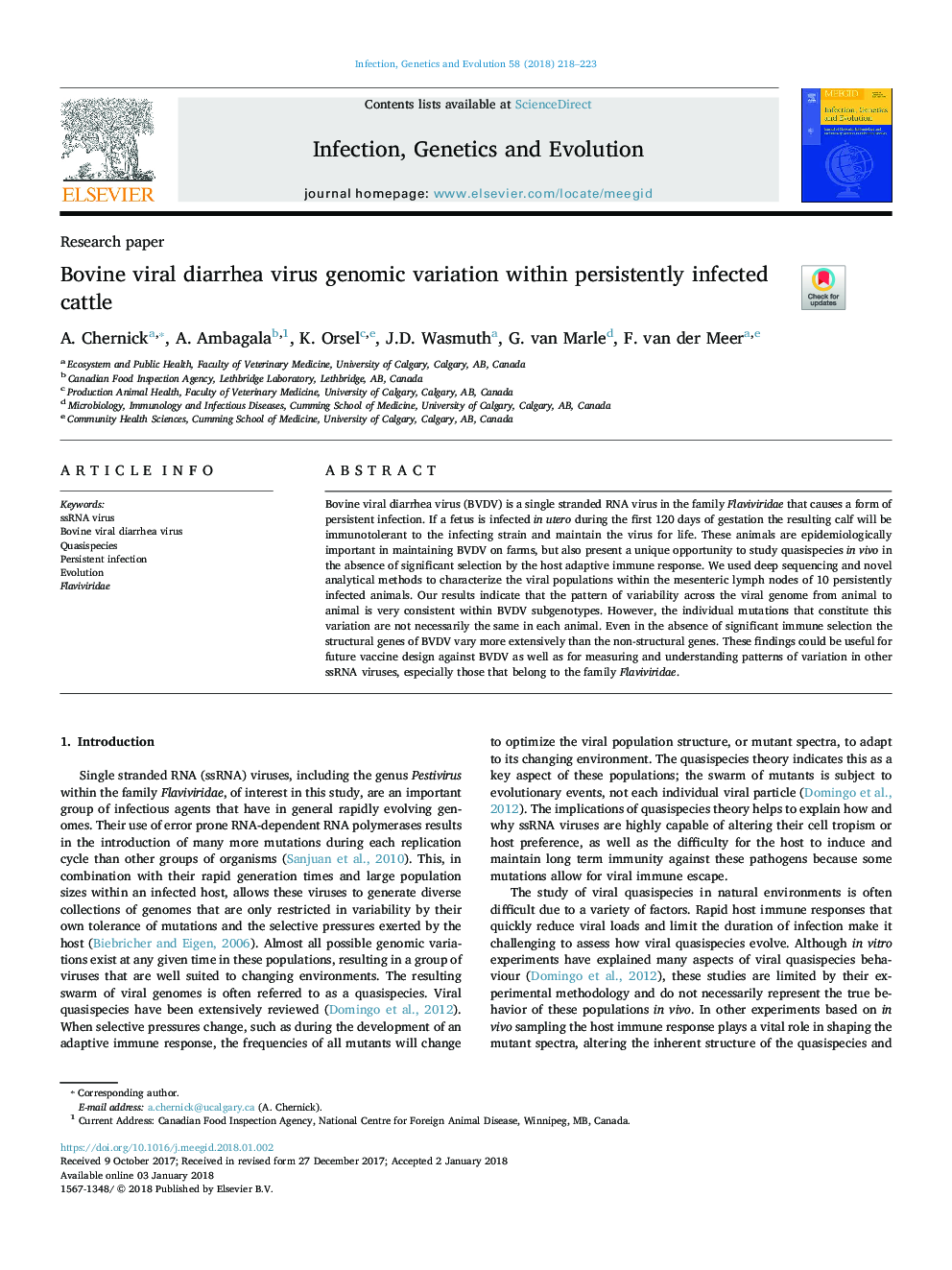| Article ID | Journal | Published Year | Pages | File Type |
|---|---|---|---|---|
| 8646987 | Infection, Genetics and Evolution | 2018 | 6 Pages |
Abstract
Bovine viral diarrhea virus (BVDV) is a single stranded RNA virus in the family Flaviviridae that causes a form of persistent infection. If a fetus is infected in utero during the first 120Â days of gestation the resulting calf will be immunotolerant to the infecting strain and maintain the virus for life. These animals are epidemiologically important in maintaining BVDV on farms, but also present a unique opportunity to study quasispecies in vivo in the absence of significant selection by the host adaptive immune response. We used deep sequencing and novel analytical methods to characterize the viral populations within the mesenteric lymph nodes of 10 persistently infected animals. Our results indicate that the pattern of variability across the viral genome from animal to animal is very consistent within BVDV subgenotypes. However, the individual mutations that constitute this variation are not necessarily the same in each animal. Even in the absence of significant immune selection the structural genes of BVDV vary more extensively than the non-structural genes. These findings could be useful for future vaccine design against BVDV as well as for measuring and understanding patterns of variation in other ssRNA viruses, especially those that belong to the family Flaviviridae.
Related Topics
Life Sciences
Agricultural and Biological Sciences
Ecology, Evolution, Behavior and Systematics
Authors
A. Chernick, A. Ambagala, K. Orsel, J.D. Wasmuth, G. van Marle, F. van der Meer,
